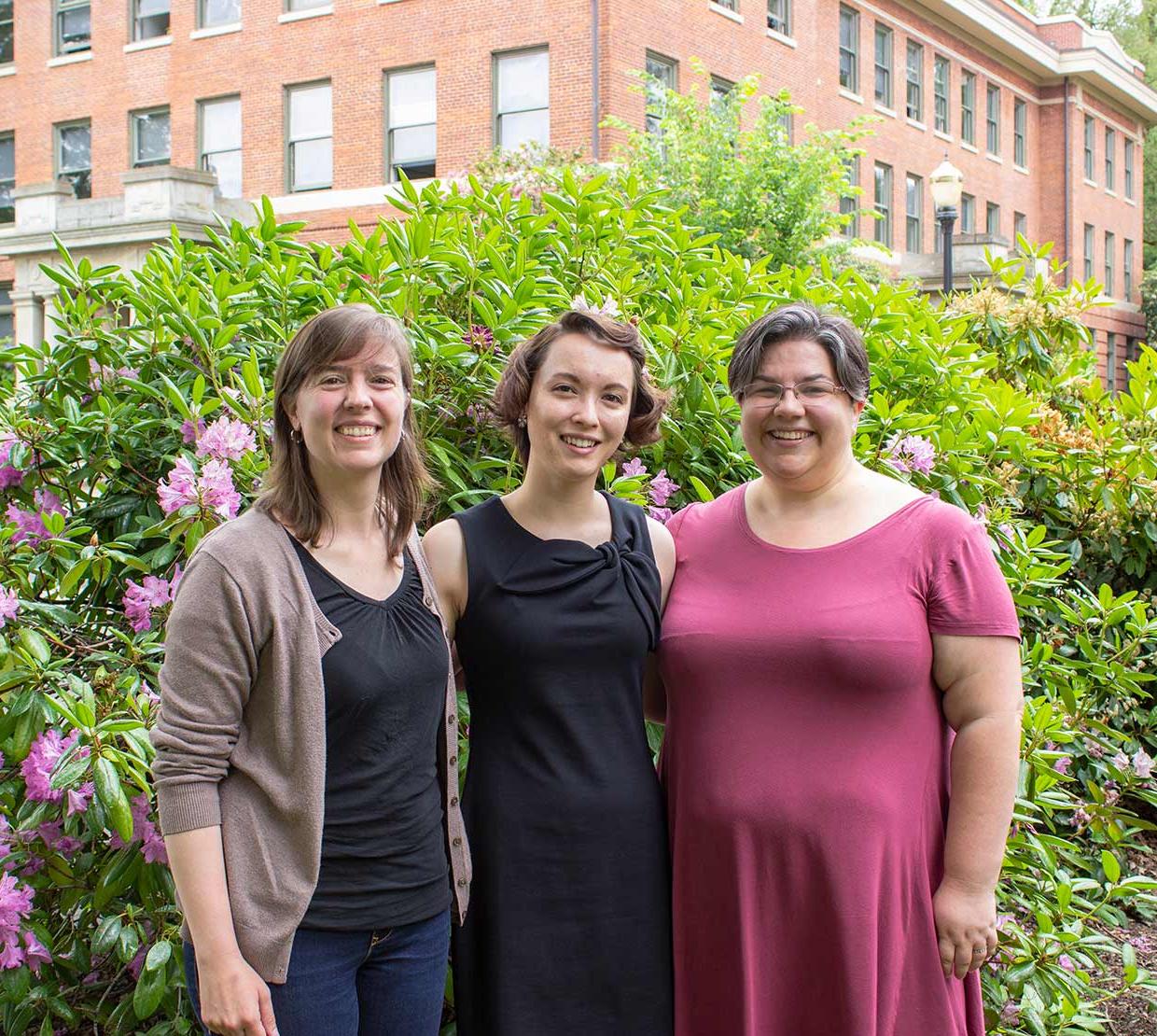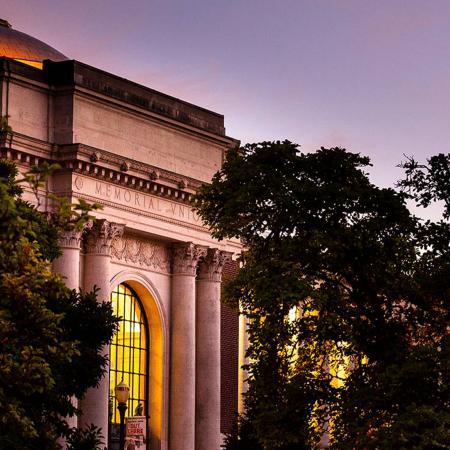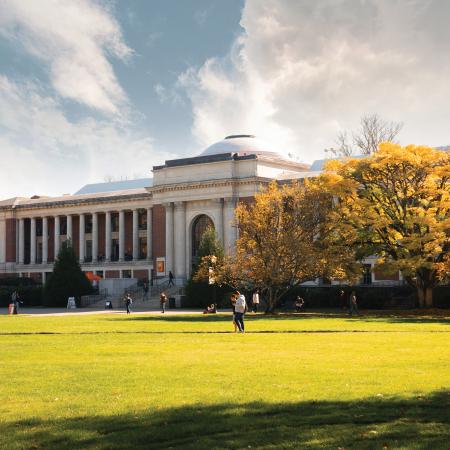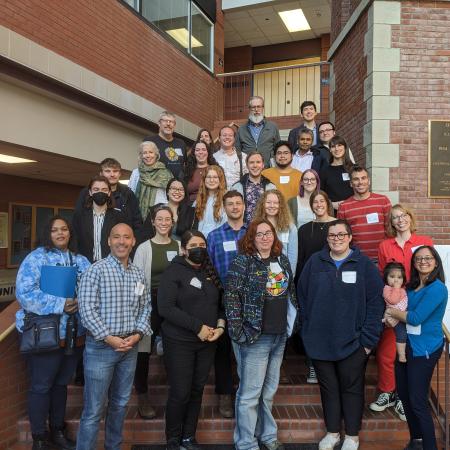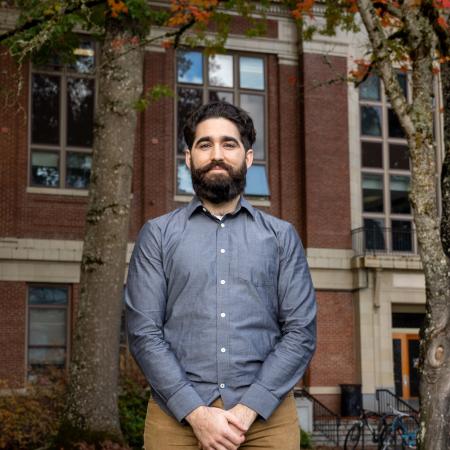In addition to their busy schedules of research, teaching, coursework, and professional development, mathematics graduate students Sarah Hagen, Branwen Purdy, and Emerald Stacy have also been dedicating their talents toward sharing their love of mathematics with the broader public.
Sarah Hagen, a fourth year PhD student doing research in partial differential equations, likes to refer to herself as a "born-again mathematician." As an undergraduate philosophy major, she did not take a single math class. It was only years later that she fell in love with the subject, almost by accident. Ever since her "conversion," Hagen has been deeply interested in finding ways to communicate the pleasures of mathematics to those outside of the mathematics community.
In preparation for the total solar eclipse passing through Corvallis in 2017, Hagen combined her love of math, astronomy, and history, to give a series of talks on how the ancient Greeks used the eclipse events to measure the moon and the sun. She spoke at the Corvallis Public Library, Tsunami Books in Eugene, and the OSU Space Grant Festival. These talks were very well-received, and the Corvallis Public Library has since asked Hagen to develop more mathematics lectures directed towards the general public. To that end, Hagen developed an interactive presentation (with lots of props and audience participation) for Pi Day.
Math instructor David Pengelley was at the library for Sarah’s Pi Day talk and had this to say. "Sarah had a standing-room-only audience of over 100 members of the Corvallis community. The topic was of course π, specifically whether π is really a constant as one varies the size of circles and the nature of geometry, e.g., on a sphere rather than a Euclidean plane. The highly interactive presentation had groups of participants measuring, calculating and discussing π in different situations, using beach balls. The audience was of all ages, with young children and school children working enthusiastically together with adults up to well past retirement age."
Hagen gave a reprise of her ancient Greek astronomy for the Da Vinci Days festival in May of 2018, and is currently working on another talk for the public library on counting infinity. Hagen is excited to see the strong interest in the broader community and is honored to be an informal math ambassador.
Branwen Purdy is a second-year graduate student doing research in the area of topological data analysis. In May 2018, Purdy marked one year of volunteering at the Coffee Creek Correctional Facility (CCCF). The CCCF is a women’s prison in Wilsonville, OR that works with Portland Community College to offer several education opportunities to women, including a GED certificate program. Specifically, Purdy works with women who are hoping to enter this program and need a refresher on their mathematics skills. Common topics include long division, fractions, decimals, and percentages. Volunteering at CCCF is always a highlight of her week, and she finds it empowering to be working with women who are so dedicated to making a positive change in their future.
This past spring, Purdy was accepted into the Oregon Museum of Science and Industry (OMSI) Science Communication Fellowship, with generous support from the College of Science and the mathematics department. She has participated in four deep-dive workshops on informal science learning and how to communicate academic research with a general audience. In addition to connecting with graduate students in other departments here at Oregon State University, she has been able to join a wider Portland network of scientists and engineers who care about fostering science curiosity in the next generation. This summer she will be participating in several OMSI public events, such as Meet-A-Scientist Day and OMSI After Dark, to share hands-on learning experiences about her research in topological data analysis.
Emerald Stacy is a sixth-year graduate student in mathematics doing her research in number theory. Stacy describes herself as passionate about teaching mathematics and creating inclusive spaces for her students, and she has recently been involved in creating training programs for graduate students in equity inclusion and justice.
In April 2018, Stacy was an invited speaker at the March for Science in Salem, Oregon. She talked about science research and the roles of women and marginalized groups within it, and about the need for the physical spaces in science education to be accessible. In particular, she spoke about the importance of access to bathrooms, collaborative learning spaces, and seats in classrooms that can accommodate large or pregnant bodies.
In spring 2018, Stacy expects to finish her PhD in mathematics with a minor in women, gender, and sexuality studies and a graduate certificate in college and university teaching. Next fall, she will begin her career as an assistant professor at Washington College, a small liberal arts college in Chestertown, Maryland.
